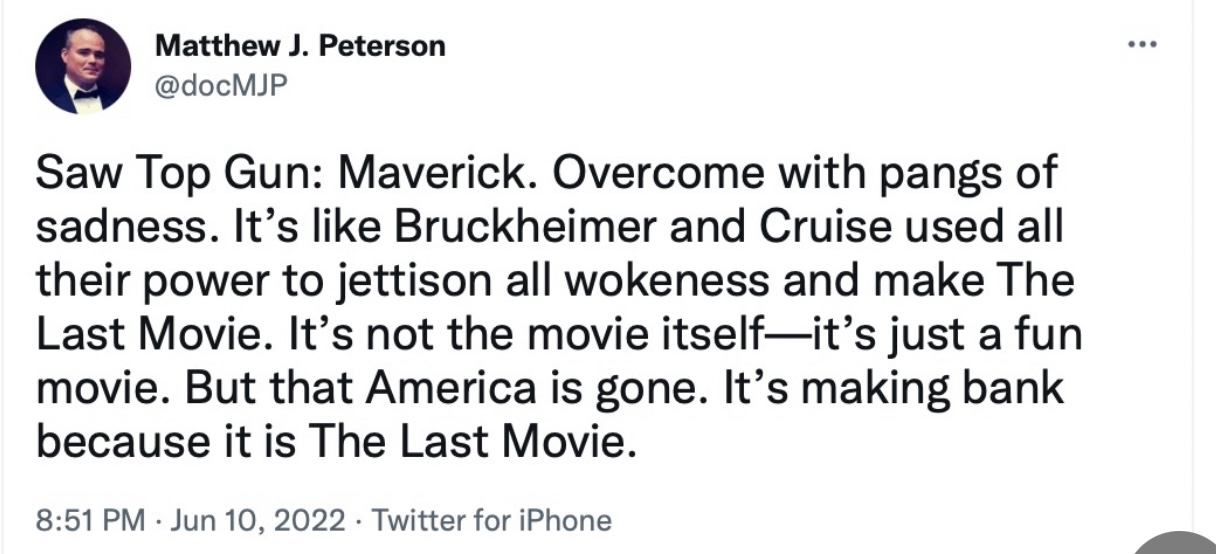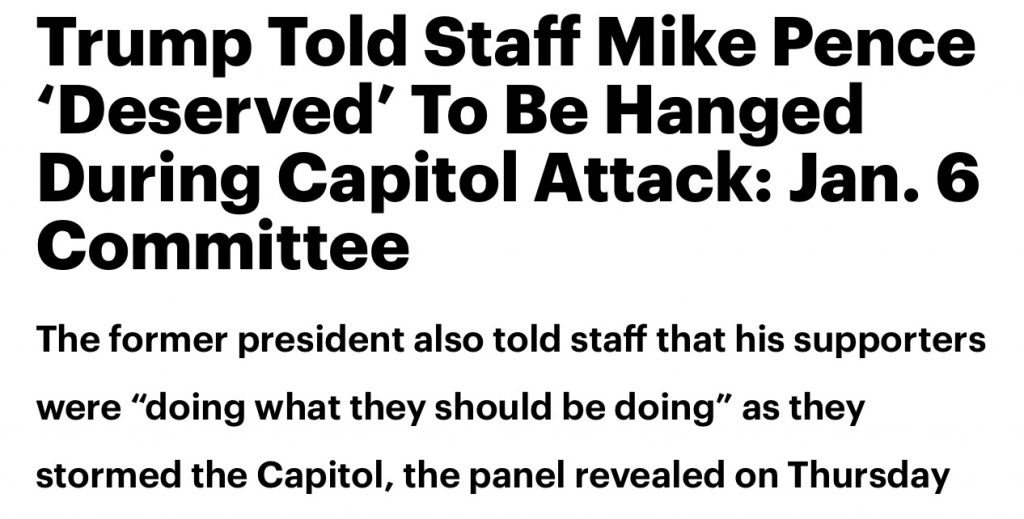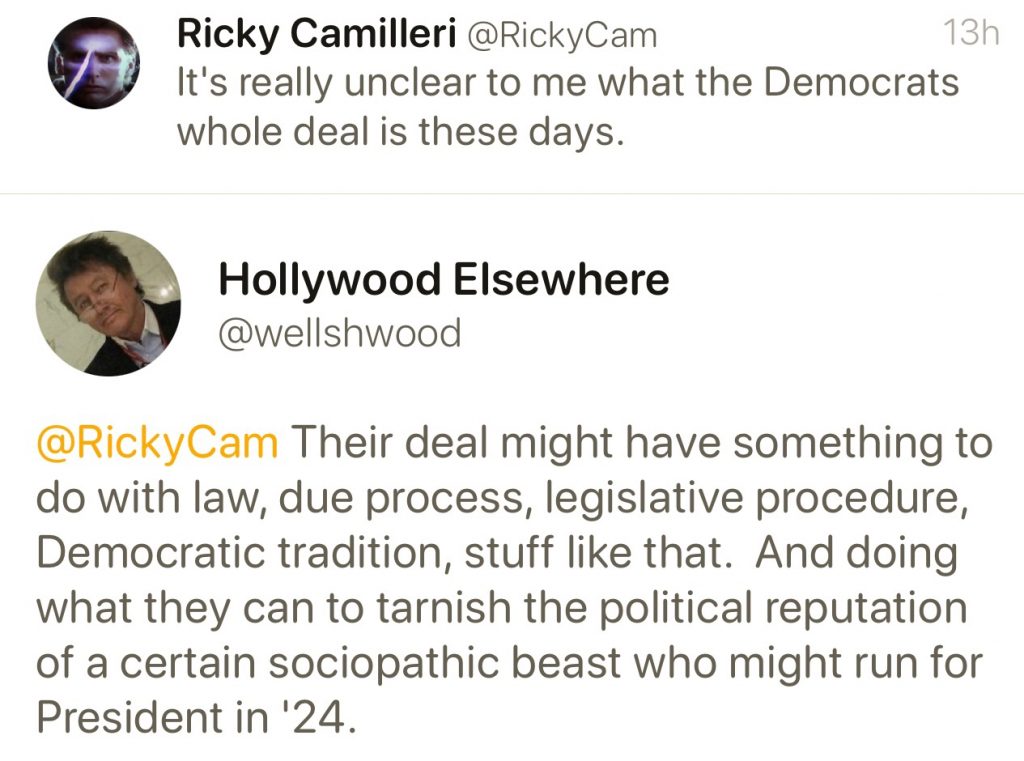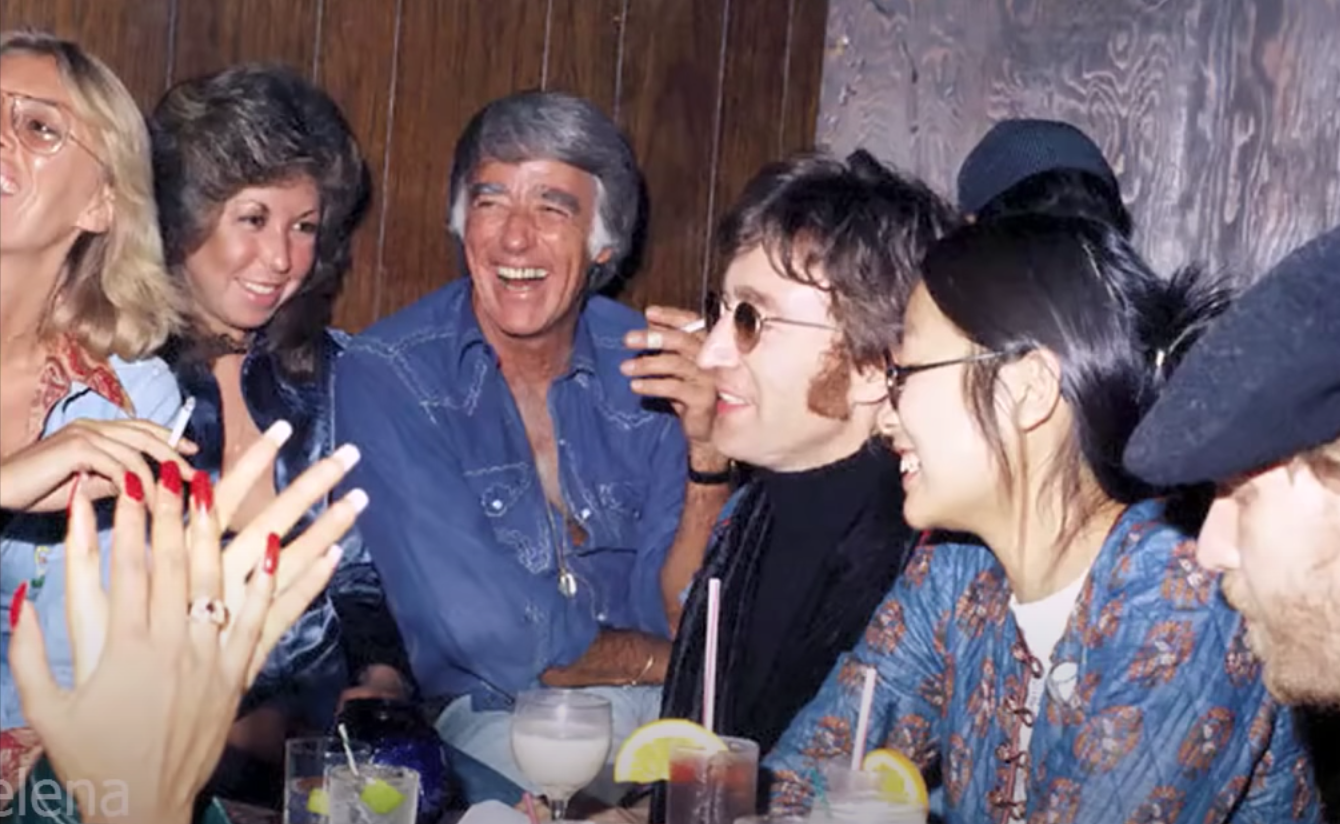
 Jeffrey Wells
Jeffrey Wells
Including Kids, Harry?
@SiriusXM: Music & Sports Harry Styles visits the Howard Stern Show. Watch the full interview & performance on the SXM App.
Taibbi Got Hated On…Surprise!
Excerpt from Matt Taibbi’s article about incoming missiles prompted by his earlier, half-supportive piece about Matt Walsh’s What Is A Woman?

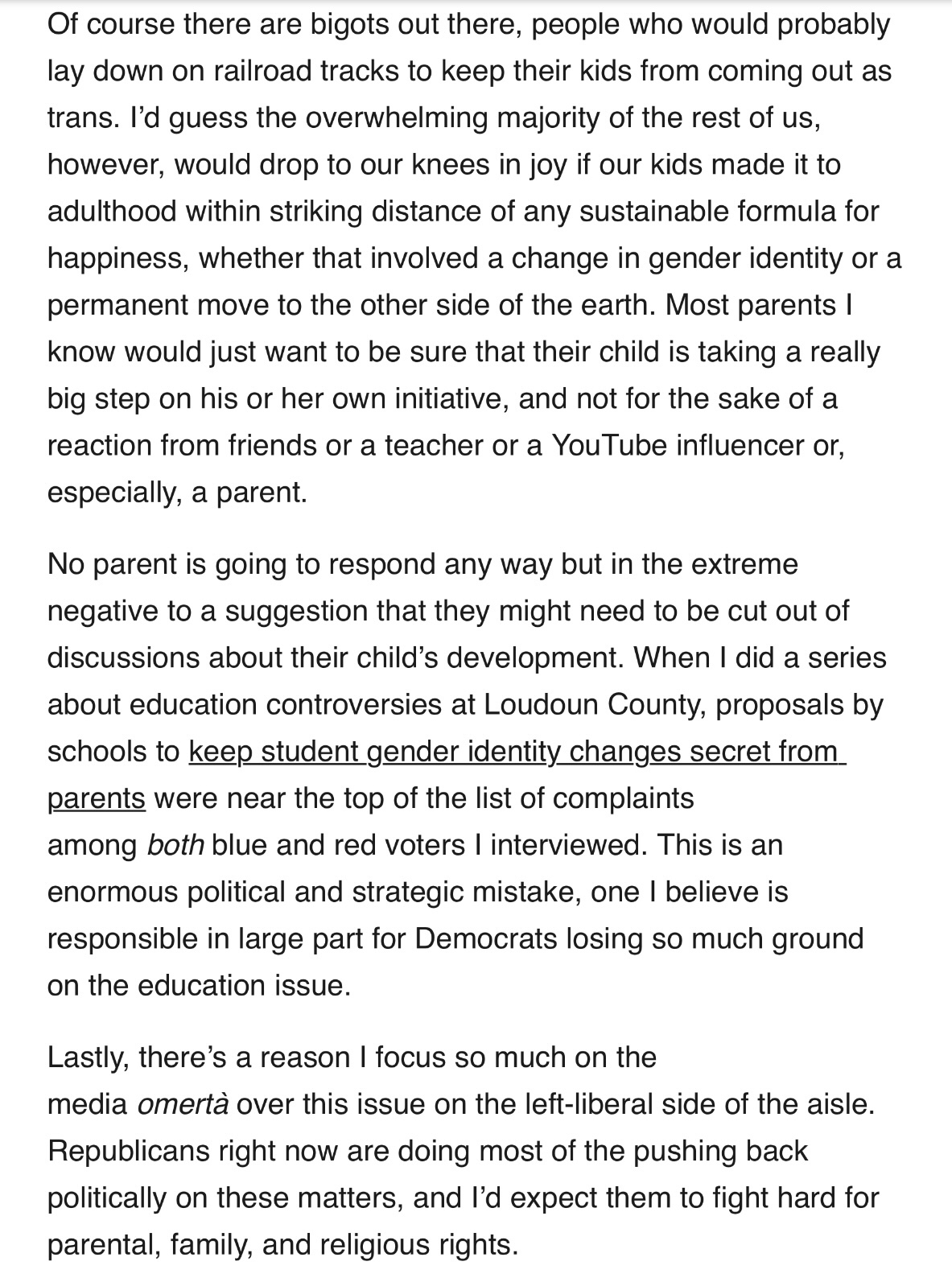
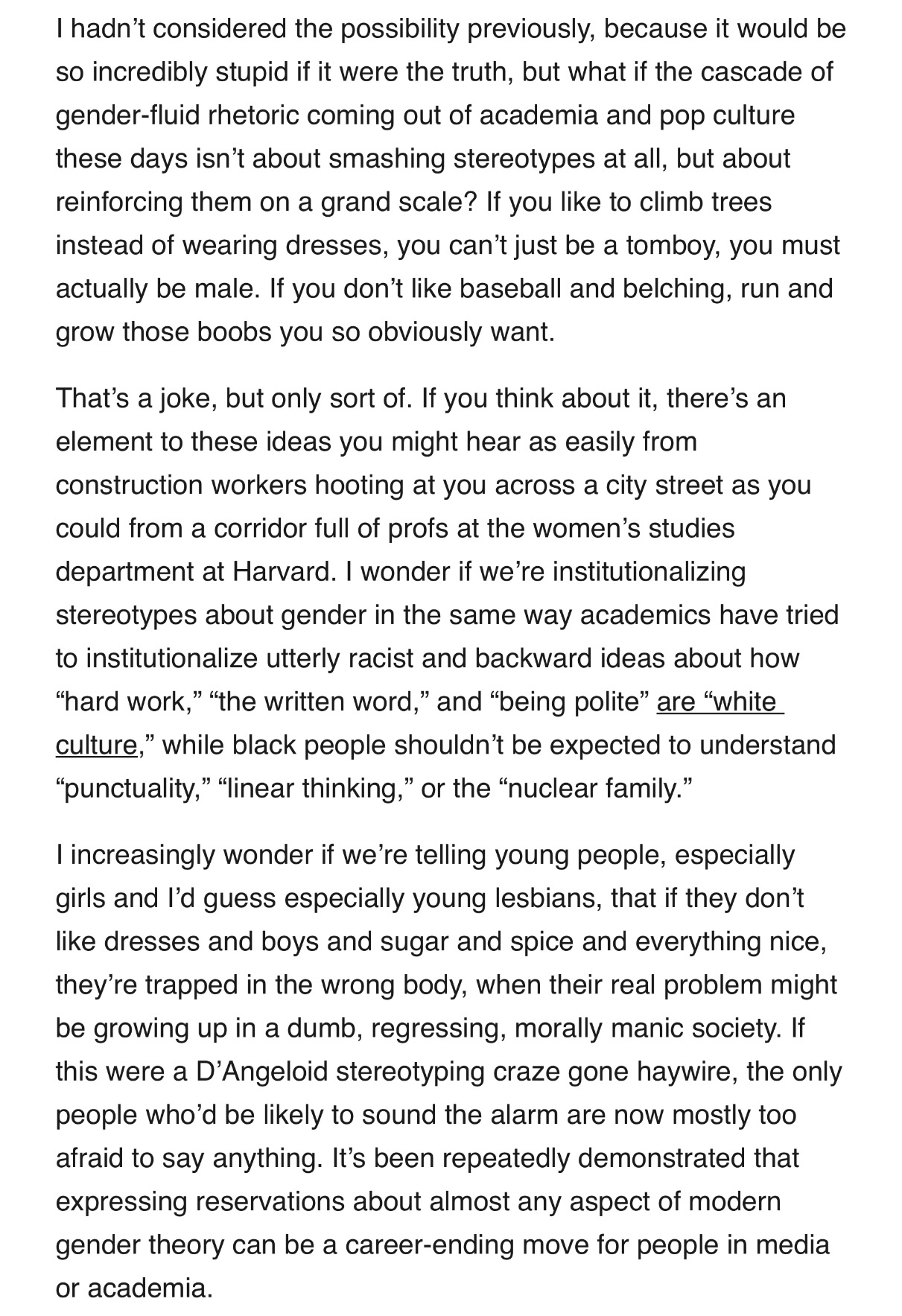
Wokester Death Throes
From Peggy Noonan‘s “The Boiling Over of America,” Wall Street Journal, 6.9.22:
“Progressive politicians have been around long enough running cities that some distinguishing characteristics can be noted. One is they don’t listen to anybody. To stop them you have to fire them. They’re not like normal politicians who have some give, who tack this way and that. Progressive politicians have no doubt, no self-correcting mechanism.
“Another characteristic: They are more loyal to theory than to people. If the people don’t like the theories the progressives impose, that’s too bad; the theory is pre-eminent.
“Progressives say: We are changing all rules on arrest and incarceration because they are bad for minority groups.
“The minority groups say that sounds good in the abstract but let’s make sure it’s good in the particular.
“It proves not to be. The minority groups say: Stop.
“The progressive says: You have to like what we’re doing, it’s good for you! What are you, racist?
“The minority groups say: We’re going to fire you.
“No you’re not, don’t be ridiculous.”
“Watch.
“And they fire him. And he’s shocked.
A Little Slack
Forgiveness is requested for not posting the usual HE quota today. I’m about to drive down to West Orange, New Jersey for some Jett-Cait-Sutton time. 90 minutes door to door.

Westport home of the late Arthur Kennedy (“Lefferts” in Elmer Gantry, “Jackson Bentley” in Lawrence of Arabia.} Also the designated “home” of Ricky and Lucy Ricardo in the mid ’50s.



Excellent “Barry” Action
This is how I like my action scenes to be shot and cut…atypically, I mean. And let’s hear it for that used-car guy who keeps an AR-15 handy! Producer-writer-star Bill Hader directed this…hats off! My only beef is with the psycho idiot shooting automatic rifle fire at Barry as he zooms by…what about all that lead being loosely sprayed at average drivers on the freeway?
“Jaws” & “E.T.” IMAX Re-Boots
I’m presuming that the IMAX presentations of Jaws and E.T., The Extra-Terrestrial will be showing up-rezzed, large-format versions. If I were in charge I would convert both into actual IMAX film and perhaps even boost the clarity with a 60 fps enhancement.
But you also have to ask “why?”
Jaws, shot in widescreen 2.39:1, isn’t going to fill the IMAX screens, and you don’t want to slice off the sides to make the image taller. And E.T. at heart is a little movie — it was never intended to be a wow experience. Super-sizing it isn’t necessary — it’s the modesty, the intimacy, the little kid personalities, the humor, the American suburban vibe.
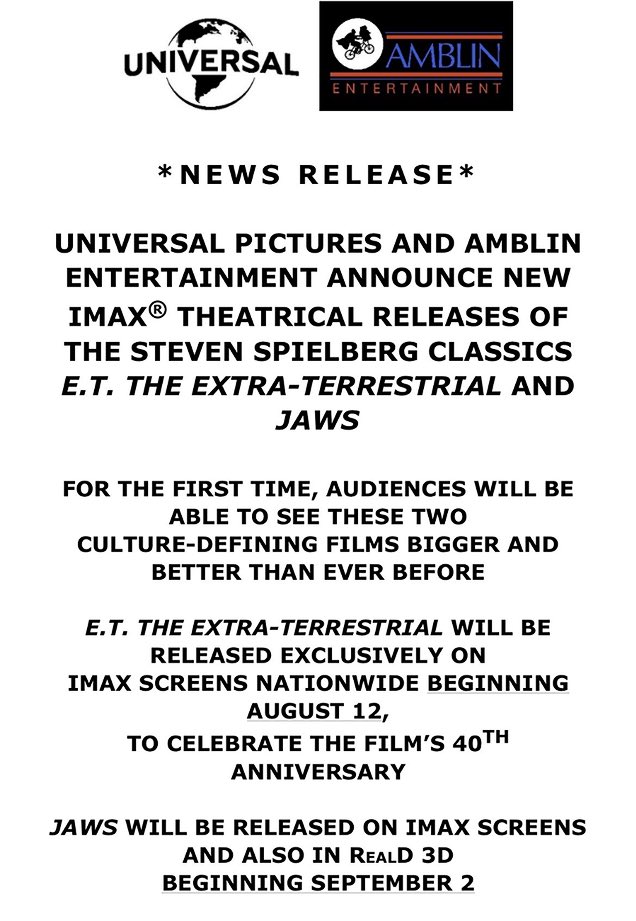
The Wild Bunch
Everyone knows about the myth of John Lennon‘s “lost weekend” — an allegedly boozy, party-animal, bachelor-on-the-loose period which lasted from the summer of ’73 until early ’75. Separated from Yoko Ono, living in Los Angeles with short-term girlfriend May Pang, romping around with Harry Nillson, Alice Cooper, Keith Moon and Micky Dolenz, collectively known as the Hollywood Vampires.
You’d presume that a documentary about this 18-month chapter, especially one actually called The Lost Weekend, would…I don’t know, catalogue the wild times and over-the-top-shenanigans and cocaine snorts and whatnot, and perhaps convey…oh, perhaps a meditation about the decline and fall of this ’60s wind-down, Hotel California, rich-rocker mentality, and how this sense of gradual drainage finally bottomed out and led to the birth of punk in ’75, or something along those lines.
There’s a Tribeca Film Festival screening tonight of Eve Brandstein, Richard Kaufman and Stuart Samuels‘ The Lost Weekend: A Love Story, and what a disappointment to learn from Roy Trakin’s 6.9 Variety article that it’s primarily a May Pang recollection-of-a-love affair thing and that it doesn’t really dig into the madman stuff.
Okay, maybe it does but Trakin’s piece discourages.
Most deflating passage: “Pang insists the celebrated Troubadour incidents — where John was thrown out of the iconic Hollywood club for heckling the Smothers Brothers and then for putting a sanitary napkin on his head — were anomalies in Lennon’s stay in Los Angeles, where he was relentlessly egged on by sidekick Harry Nilsson in particular.
“’John was drinking, but that was overblown in retrospect,’ says Pang. ‘The press keeps repeating the same stories over and over.'”
Second most deflating passage: “I decided it was time to reclaim my own history,” says Pang, 72. “It’s my version. I figured, if there was going to be a film about my life, I should be involved. Who better to tell the story than me? I lived it. These are my memories. No one experienced it like I did. Why should I let somebody else talk about my time with John?’”
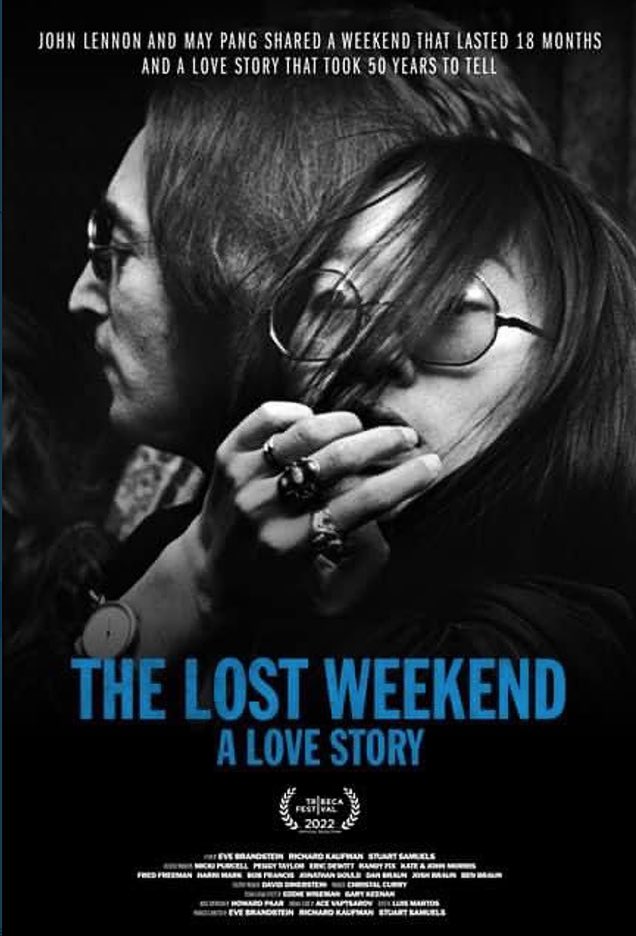
Touched-by-God Composer
In early ’16 I had the honor of shaking hands and briefly speaking with genius composter Ryuichi Sakamoto (The Revenant, Call Me By Your Name, The Last Emperor, The Sheltering Sky, Little Buddha, Merry Christmas, Mr. Lawrence and a Guadagnino short film, The Staggering Girl).
I met Sakamoto at a Revenant Oscar party; I said emphatically that I regarded his Revenant score as the best of the year, and that despite the Academy’s petty refusal to nominate the score he and collaborator Alva Noto should have won an Oscar for it.
Three days ago Sakamoto, 70, announced that he’s battling stage 4 cancer.
I had heard in ’14 or ’15 that he had been afflicted with throat cancer. Writing for the Japanese literary magazine Shincho, the legendary composer and Yellow Magic Orchestra member wrote that he’s undergone surgery late last year to remove cancer that had spread to both lungs. Stage 4 generally means that the patient should get his/her affairs in order.
My deepest sympathies to Sakamoto and his family, and to his many creative collaborators including Alejandro G. Inarritu and Luca Guadagnino and everyone else who has known or worked with him. One of the all-time greats. The Mr. Lawrence theme still sets my heart aflutter.

